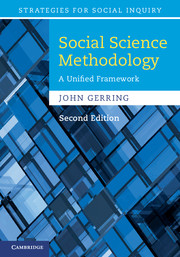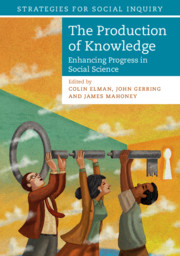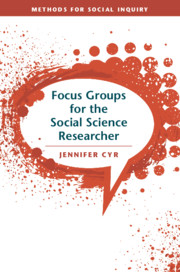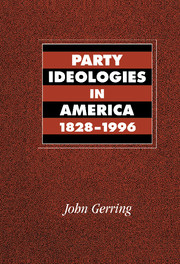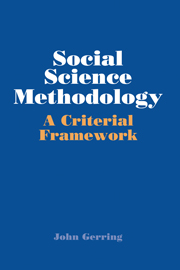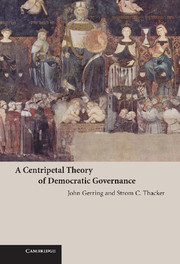Social Science Methodology
John Gerring's exceptional textbook has been thoroughly revised in this second edition. It offers a one-volume introduction to social science methodology relevant to the disciplines of anthropology, economics, history, political science, psychology and sociology. This new edition has been extensively developed with the introduction of new material and a thorough treatment of essential elements such as conceptualization, measurement, causality and research design. It is written for students, long-time practitioners and methodologists and covers both qualitative and quantitative methods. It synthesizes the vast and diverse field of methodology in a way that is clear, concise and comprehensive. While offering a handy overview of the subject, the book is also an argument about how we should conceptualize methodological problems. Thinking about methodology through this lens provides a new framework for understanding work in the social sciences.
- Places social science methodology in a broad historical and intellectual context
- Relies on basic level criteria of adequacy to ground the methods and practices of the social sciences
- Identifies broad themes of social science methodology that are useful to practitioners
Reviews & endorsements
'Gerring is one of the few political scientists who is equally adept at both qualitative and quantitative research, and can make the advantages of each approach clear to students. This book sheds more light on how to study causation in the social sciences than any other text - I recommend it to everyone from active researchers to beginning students.' Jack A. Goldstone, Hazel Professor of Public Policy, George Mason University
'Social Science Methodology speaks across paradigms. It is a 'must read' not just for graduate students, but for scholars across fields as Gerring gets to the core of what social scientists do. The bottom line is that readers reach a practical end, which is knowing what approach to use when and how to adapt based on the question posed.' Janet M. Box-Steffensmeier, Vernal Riffe Professor of Political Science and Courtesy Professor of Sociology, Ohio State University
'Gerring's book is simultaneously provocative and wise. It is the former in that it advocates for a unified (though not singular) social science methodology. It is the latter in the many ways it recommends that we think about and do science. On the one hand, Gerring has offered a compelling case for what unifies social science methodology. This should be debated for years to come. On the other hand, students of social science will benefit enormously by closely reading this sage volume. They will find particularly valuable his thorough, but nontechnical presentation of causal analysis.' Christopher Winship, Diker-Tishman Professor of Sociology, Harvard University
'The second edition presents a remarkable updating and expansion of Gerring's arguments and presentation. A tremendous amount of careful work went into the revisions, and both methodologists and teachers of methodology owe Gerring an enormous debt for producing an even more compelling version of what was already an outstanding book.' David Collier, Chancellor's Professor of Political Science, University of California, Berkeley
'Social Science Methodology is a book with a wealth of well-organised material aimed at both students and practitioners of social science.' Acta Politica
Product details
December 2011Hardback
9780521115049
522 pages
254 × 182 × 28 mm
1.16kg
22 b/w illus. 26 tables
Available
Table of Contents
- Preface
- 1. A unified framework
- Part I. General:
- 2. Beginnings
- 3. Arguments
- 4. Analyses
- Part II. Description:
- 5. Concepts
- 6. Descriptive arguments
- 7. Measurements
- Part III. Causation:
- 8. Causal arguments
- 9. Causal analyses
- 10. Causal strategies: X and Y
- 11. Causal strategies: beyond X and Y
- 12. Varying approaches to causal inference
- Part IV. Conclusions:
- 13. Unity and plurality
- 14. Setting standards
- Postscript: justifications
- Appendix: a few words on style.

